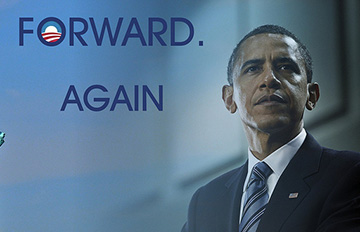
In his final SOTU address, President Obama projected a bold vision for a more socially and economically just nation while appealing to the hopes of the American people.
He identified unprecedented economic, environmental and social challenges that will frame the 2016 elections and the years to come.
President Obama recounted historic achievements of the administration and advanced the challenges with full knowledge of the powerful forces arrayed in opposition.
These include Wall Street, massive growth of wealth and power of the 1% and the unrelenting obstruction of the right wing dominated GOP congress and the Supreme Court.
President Obama pointedly rejected right wing Republican policy solutions including repeal of Obamacare, aggressive military buildup and action, tax cuts to the wealthy, blocking common sense gun control, while supporting “states rights” to undermine civil rights and equality.
He also rejected efforts to exploit the fears of the American people using hate, anti-Muslim bigotry, racism and division.
Administration achievements include creation of millions of new jobs, normalization of relations with Cuba, the Iran nuclear deal and Obamacare and extension of health care to 18 million people.
They also include the historic agreement at the UN Climate Summit (made possible by a historic agreement with China), new regulations reducing greenhouse gas emissions and new investments in sustainable energy sources.
Facing rightwing GOP opposition and racist demonization, the president has no choice but continue executive actions bypassing Congress on gun control, closing Guantanamo Bay prison and climate change.
However, some administration policies move in the wrong direction. These include free trade deals and the shameful deportations of undocumented immigrants, especially those fleeing violence from Central America.
What is possible to achieve given the current political realities and what is needed to address the enormous challenges are two different things.
The president’s optimism for change is based on majority support for curbing climate change, taxing the wealthy, immigration reform, worker rights, marriage equality and increasing the minimum wage. His confidence is deeply rooted in American history and the power of transformational majority movements of the past.
President Obama asserted the only way to overcome the obstruction of the right wing and 1% was mass participation and unity of the people.
The challenges facing the nation and planet are immense: climate crisis, massive concentration and inequality of wealth, growing poverty and declining wages, joblessness, including skyrocketing unemployment in the African American community, over $1 trillion in student debt, a crumbling infrastructure, underfunded schools and social services, lack of affordable housing, a frayed retirement security system, etc.
A radical restructuring of the economy as advocated by Sen. Bernie Sanders is needed. This includes curbing the power of Wall Street financial institutions, redistribution of wealth through taxing the rich and ending corporate welfare, transitioning to a green economy with a mass public works jobs program, raising the minimum wage to $15/ hour, and public takeover of the energy industry.
The US needs a new peaceful, non-interventionist foreign policy including elimination of weapons of mass destruction, closing military bases while radically downsizing the US military.
Also needed are radical reforms expanding democratic rights including collective bargaining, affirmative action, criminal justice reform, decriminalization of marijuana, a radical reduction of the prison population and a path to citizenship for millions of immigrants.
With millions of workers being displaced by automation and transition to renewable energy sources, a guaranteed social wage, shorter workweek with no cut in pay, universal health care and free tuition at public colleges and universities are also needed.
President Obama got it right to demand reform of the political system: legislation to repeal the Citizens United decision and voter suppression laws, elimination of gerrymandering, and creating ways to make it far easier to vote. Reforms are needed allowing for greater participation of third parties.
But advancing a people’s agenda in the immediate period depends on the outcome of the 2016 elections and the broadest voter mobilization ever.


 Join Now
Join Now